- Category
- Life in Ukraine
Russia Took His Arm and Leg. Now British Volunteer Eddy Finds Strength at Ukraine’s Leading Rehab Center
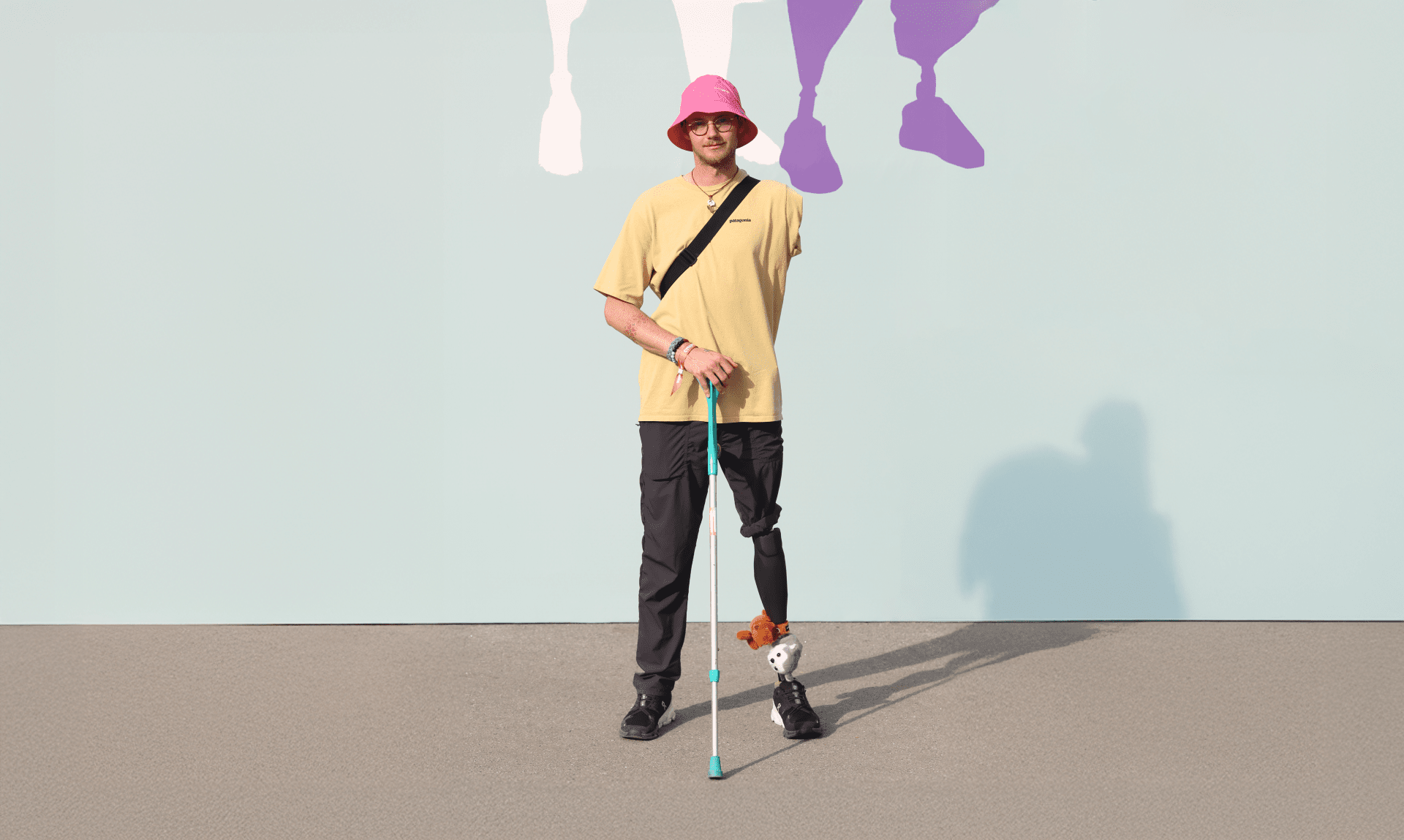
When a Russian drone hit Eddy Scott’s truck in a strike on a humanitarian mission near Pokrovsk, the volunteer lost his limbs. But instead of going home, the British sailor-turned-medic stayed in Ukraine, advocating for the war’s wounded and proving that its reintegration model doesn’t just rival the West, but can teach it.
Edward Scott, 28, came to Ukraine with no military experience, no Ukrainian roots, and no plan to stay. Looking back to the early days of Russia’s full-scale invasion, Eddy says that he knew very little about what was going on in Ukraine, only that there was a war. Having started following the news about Russian military aggression in Ukraine’s Donetsk and Luhansk regions in late 2021, he says:
I realized right away that Russia was invading, that Russia was the aggressor. I hadn’t seen anything from Ukraine to suggest that any of this was justified. I saw it for what it was—and I wanted to do something
Edward Scott
British volunteer
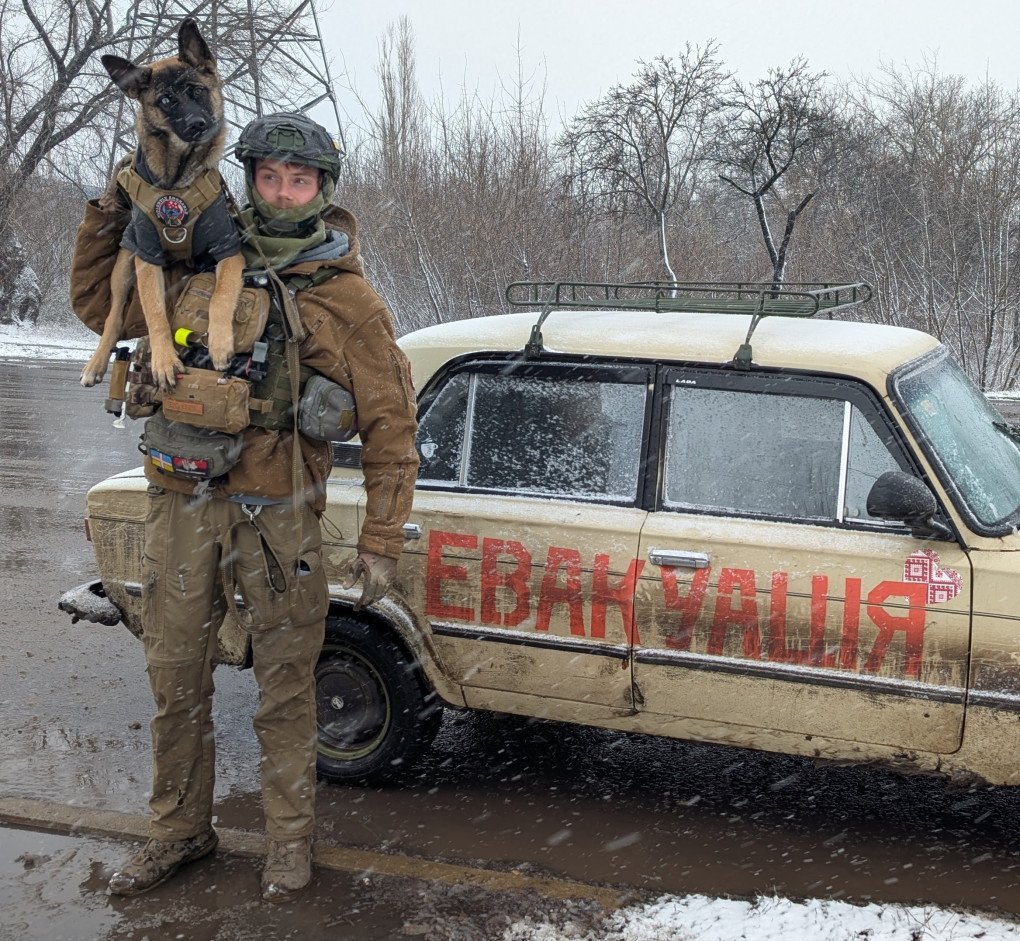
From Dorset to Donbas
Eddy, the sailor, was preparing for a promotion on the boat; instead, he left behind his life and began actively seeking out volunteer opportunities in Ukraine. He watched on social media as men from various countries signed up to fight alongside the Ukrainian Armed Forces, but having no military experience himself, Eddy decided to pursue the humanitarian route, which was in urgent need of volunteers. With the guidance and support of volunteers who were already on the ground, Eddy began planning his next steps—buy a car, fill it with medical supplies and tools, and drive to Donbas—everything else would fall into place.
In October 2022, he formally left his job, bought a truck, and made his way to Kramatorsk.
While he encountered endless support from locals and foreigners in Ukraine, Eddy’s family, who at the time, remained “neutral,” didn’t understand his decision. Still, Eddy’s conviction was unwavering: “It was clear that Europe was under threat. It was so clear who the good guys were and who the bad guys were.” Within weeks of arriving in Ukraine, he decided to stay long-term, explaining that Ukraine’s fight for survival became his priority.
Today, after losing an arm and a leg in a Russian drone attack during a Pokrovsk evacuation, Eddy vows to stay until the Ukrainian victory. Of course, the injury has changed his life physically and mentally, but he holds fast that he has no regrets.“I’m incredibly happy with my decision,” he says.
“Everything that Ukraine has given me has been so incredibly worth it. I won’t live that easy life of cruising around the Mediterranean and Caribbean, but this is worth it.”
Advocacy replaces evacuations
Following his injury, Eddy’s work in Ukraine has shifted. A significant component of Ukrainian post-victory life will be investing in reconstruction and the reintegration of soldiers into civilian life, many of whom, like Eddy, will have multiple amputations and other life-changing injuries.
Before the attack, Eddy had supplied hospitals in the east of Ukraine, and didn’t have a positive view of Ukrainian rehabilitation services.
The day after the attack, the British embassy was contacted on Eddy’s behalf – to their surprise, the embassy responded that they aren’t responsible for the medical care of British nationals in Ukraine. This position changed after Eddy’s story became public and politicians began contacting his family. At this point, however, he had already decided to remain in Ukraine for his trauma care and rehab, saying the treatment he’s received has completely exceeded his expectations.
The World Health Organization’s (WHO) "Standards for Prosthetics and Orthotics" outlines the prioritization of people-centered care wherein the prosthetic user is “at the centre of the establishment, development and maintenance of services” as a global best practice—something Ukrainian rehabilitation services, in particular Superhumans, excel at, Eddy says.
While, admittedly, Eddy has not experienced state rehabilitation services, he is confident that Superhumans is an example of what the system can evolve into. “If we can do it here, other places can as well,” he says.
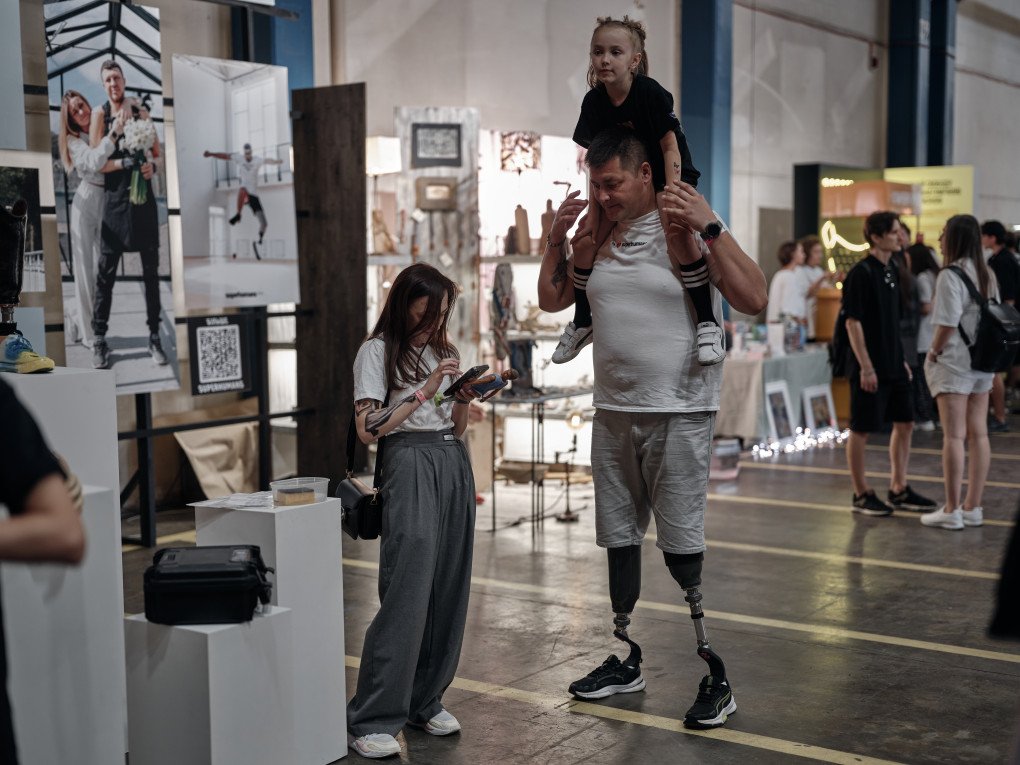
Superhumans isn’t just a rehabilitation facility, but a full-spectrum reintegration center, explaining that the main focus, beyond the prosthetic itself, is on reintegrating veterans into civilian life where they aren’t just surviving, but thriving, says Eddy. From financial planning classes to aquatherapy to cooking lessons—every aspect of post-injury life is taken into consideration. The center also prioritizes employing former patients who have completed rehab in peer-to-peer roles to offer support and guidance in a way that someone who has not experienced war-related injuries would be capable of.
He notes the transformation that Ukrainian society as a whole has undergone in recent years, particularly since Russia’s full-scale invasion.
Ukraine is not like the Soviet Union, where anyone who was disabled was hidden away, and you pretend they don’t exist. Injured veterans are at the forefront of life here.
Edward Scott
British volunteer
Ukraine has a long way to go with accessibility and infrastructure; however, unlike in the UK, where the medic hails from, he says he doesn’t feel patronized in Ukraine.
“Veterans with amputations are a part of Ukrainian society,” says Eddy. “We are going to become very commonplace in society, and the country is going to have to adapt. Already seeing how veterans are treated here is encouraging for the future.”
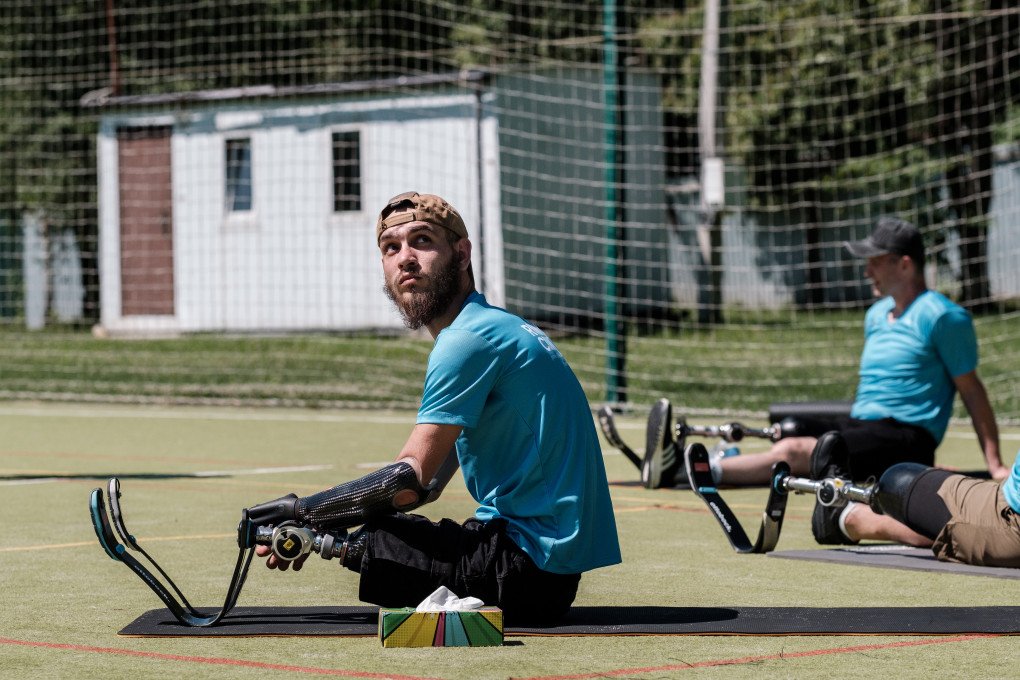
Shared lessons: What the world can learn from Ukraine
Although there are challenges with reintegration because society is not set up for people with disabilities, this is changing, says Eddy. Ukrainian innovation, adaptability, resilience, and empathy have propelled Ukrainian specialists to expert status. He believes that due to the scale, frequency, and complexity of war-related traumas and the adaptive responses these traumas have demanded, Ukraine is advancing far beyond its Western counterparts in areas related to war and tech.
The injuries facing Ukrainian surgeons and medical teams differ from those previously seen by American practitioners, even those experienced in treating veterans from missions in Iraq and Afghanistan, as Russia’s use of drones and dirty tactics has changed the nature of warfare.
In the American case, the majority of injuries sustained resulted from small-caliber firearms, improvised explosive devices (IEDs), and indirect fire from short-range mortars and rockets. Russian forces, however, deploy heavier and longer-range weaponry, such as anti-tank guided missiles , denial munitions, such as anti-tank and anti-personnel mines, and incendiary munitions. American troops also had the ability to evacuate their wounded within hours, whereas Ukrainian medics often can’t access wounded soldiers for days due to heavy, ongoing fire. This, complicated by the fact that tourniquets left on for 12+ hours often result in multiple amputations, makes Ukrainian war wounds and their treatment plans unique.
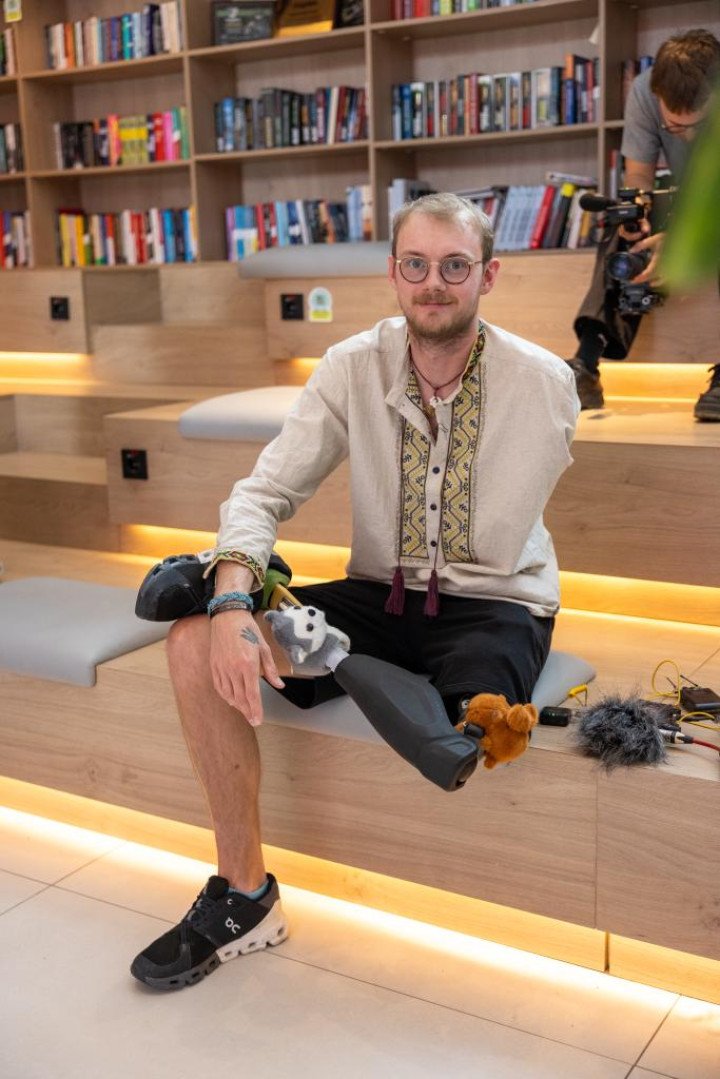
Reporting on their experience in Ukraine, Dr. Aaron Epstein of the Global Surgical and Medical Support Group states, “The lessons learned here [in Ukraine] could help the US anticipate challenges and successfully plan for the provision of medical care in a future conflict against an adversary with capabilities close to its own.”
It’s not just the Americans learning from Ukraine. Ukrainian specialists are eager to learn from their international colleagues as well. Dr. Danylo Turkevych and Dr. Anastasiia Kulynych, trauma surgeons from Lviv, are just two of the Ukrainian doctors who took part in training with top doctors at St. Mary’s Hospital in London, UK, hoping to refine their skills even further. Lead Trauma Surgeon at the Imperial College NHS Trust, Shehan Hettiaratchy, confirms that the surgeons’ confidence and skills advanced throughout the training period. Turkevych and Kulynych returned to Lviv, ready to practice and share their new knowledge.
“There is a lot to learn from the West,” agrees Eddy, “but places like Superhumans are surpassing what the West can do. The surgeons here have so much experience with a wide range of injuries that you would not get outside of a war zone. That knowledge is going to be practiced throughout the world.”
Superhumans announced in May 2025 the launch of a new facial reconstruction program with France. The collaboration with French surgeons began in July 2023, culminating in a joint project that focuses on “complex reconstructive surgeries for patients with facial injuries caused by mines and gunshots.” Home to an eminent school of facial reconstruction surgery, France was a natural choice for the partnership. The ongoing medical mission, from June 2-13, includes 10 complex procedures.
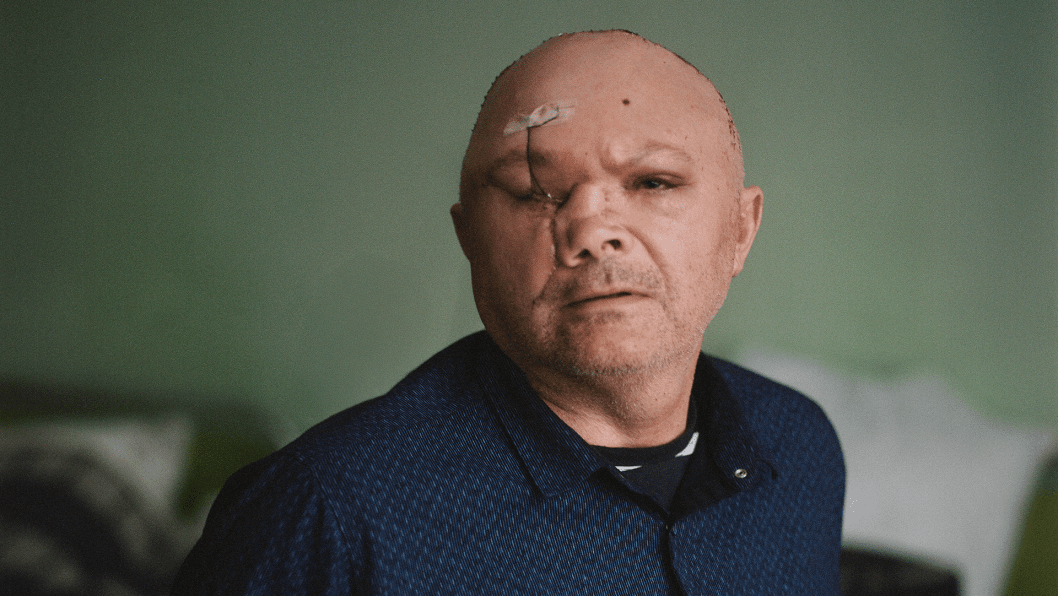
The former sailor never dreamed of becoming a public figure or a spokesperson. However, now that life has thrust him into the role of ambassador, he takes his role seriously, saying, without hesitation, “Superhumans is arguably the best rehab center in the world. You will have foreign surgeons and therapists who come and share their techniques, but they will also go away having learned new techniques.”
The center also prioritizes psychological trauma care with diverse therapeutic approaches, such as music therapy, animal therapy, and riding therapy, to complement traditional therapy in addressing PTSD. Although Eddy says he escaped his ordeal with minimal PTSD, he does work with a mental-health practitioner, saying Superhumans excels at addressing its patients' mental health needs.
UK voice for Ukraine
Eddy’s role as an ambassador extends beyond the rehab center. Prior to his arrival in Ukraine, Eddy’s father wasn’t necessarily pro-Russia but he wasn’t supporting Ukraine either. All of that changed after he came to see Eddy in the hospital, spent three days in Ukraine, and visited Kyiv’s Independence Square to pay tribute to the fallen soldiers.
“He did a complete one-eighty,” Eddy says of his father’s previously apathetic position. Now, Mr. Scott does public talks about Ukraine.
Eddy believes that, when done responsibly, non-Ukrainians can play a significant role in sharing the Ukrainian perspective with the world, saying he has no plans to stop advocating for Ukraine.
And after living for two years in Kramatorsk and now in the Lviv region, Eddy has also fallen in love with the country: “It’s impossible to turn my back on this. So much will disappear if we don’t fight back.” Eddy believes that Russia has genocidal intent, stating that the rhetoric of the Russian government is evidence of that. “When you have a genocide, there is destruction of culture, and we have seen that in Ukraine.”
Eddy recalls from his personal experience the many times his car has broken down on the side of the road, with locals taking him in and ensuring he had a place to rest while they worked on his car. “It’s just a generous and kind place, especially after everything Ukraine has gone through.”
Thinking about the future, Eddy dreams of a quiet life, a dacha , a garden, a wife, and family. For now, though, he’s focused on Ukraine’s future rather than his own. “Following the victory,” he says, “Ukraine will be flooded with tourists, with people wanting to see the place we’ve been defending. And investors.” The real task will be on growing the unity that the war has amplified – “From what I’ve seen, Ukraine has been unified for a very long time; if Ukraine can keep this going forward, whatever struggles come forth will be easy to overcome. As long as all of us are working towards the same goals, the betterment of Ukraine, this country will be unstoppable.”
Eddy hopes to see the return of Ukraine’s 1991 borders and believes it’s a possible military feat. This would be a win not only for Ukraine but for Europe as a whole. He believes that the democratic world needs to rally behind Ukraine, as Ukraine’s fight for survival also upholds European security.
“Russia has been clear, again and again, that it plans to advance far beyond Ukraine’s borders,” he says. “European security aside, Ukraine deserves to defend itself.”
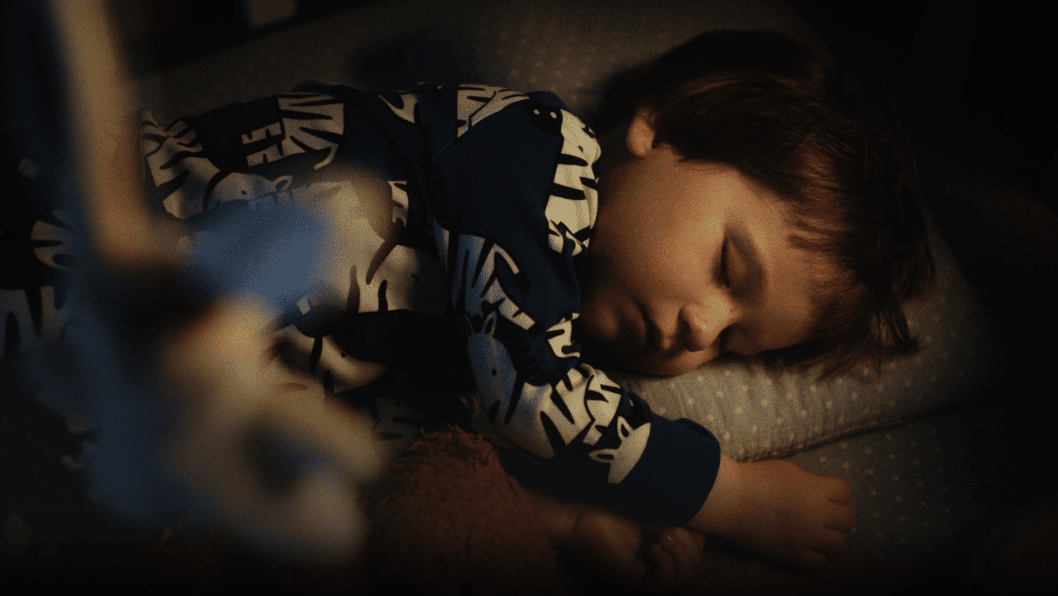
-8fda54010650befcec1e2c4d694c566b.jpg)
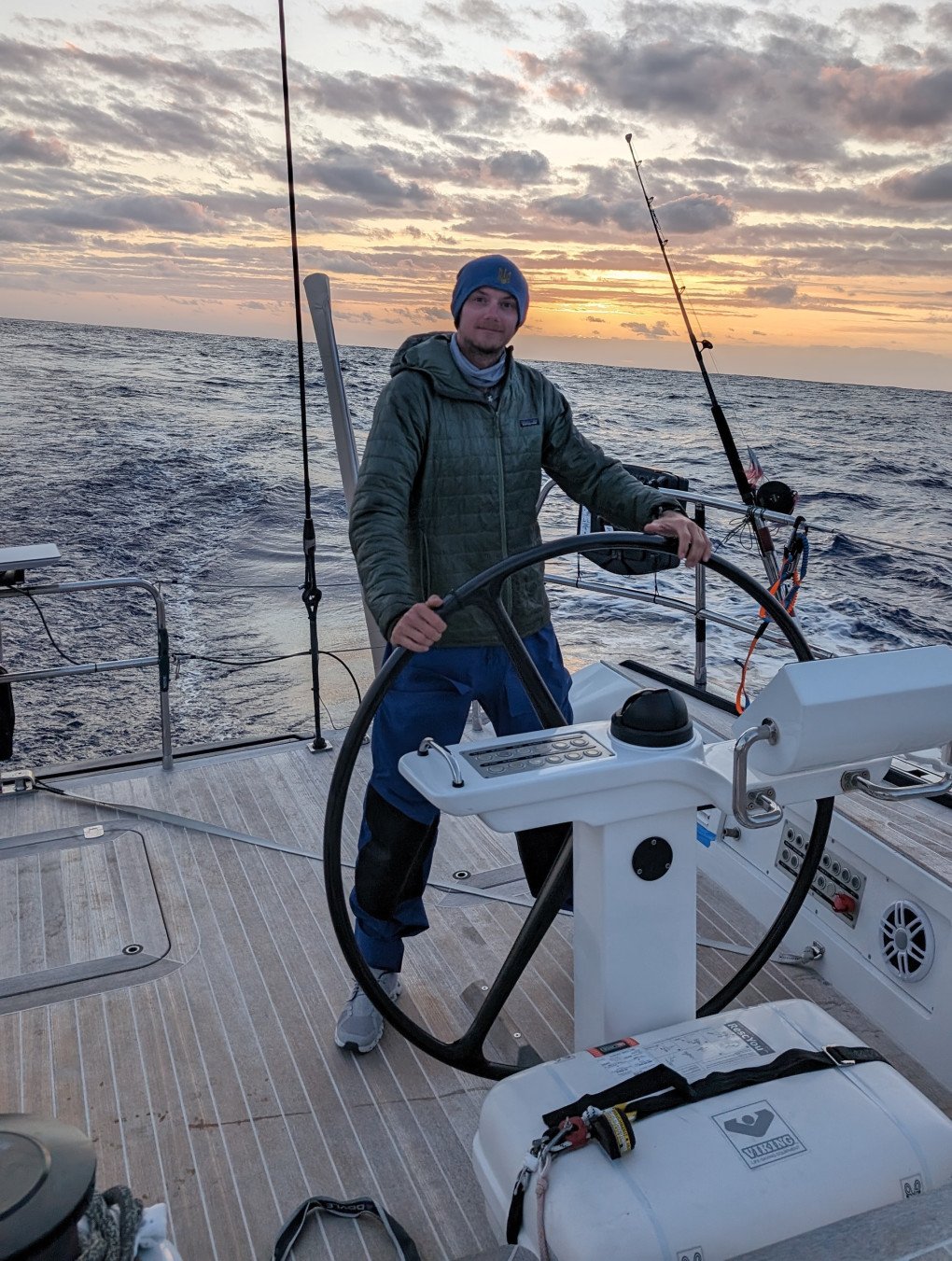
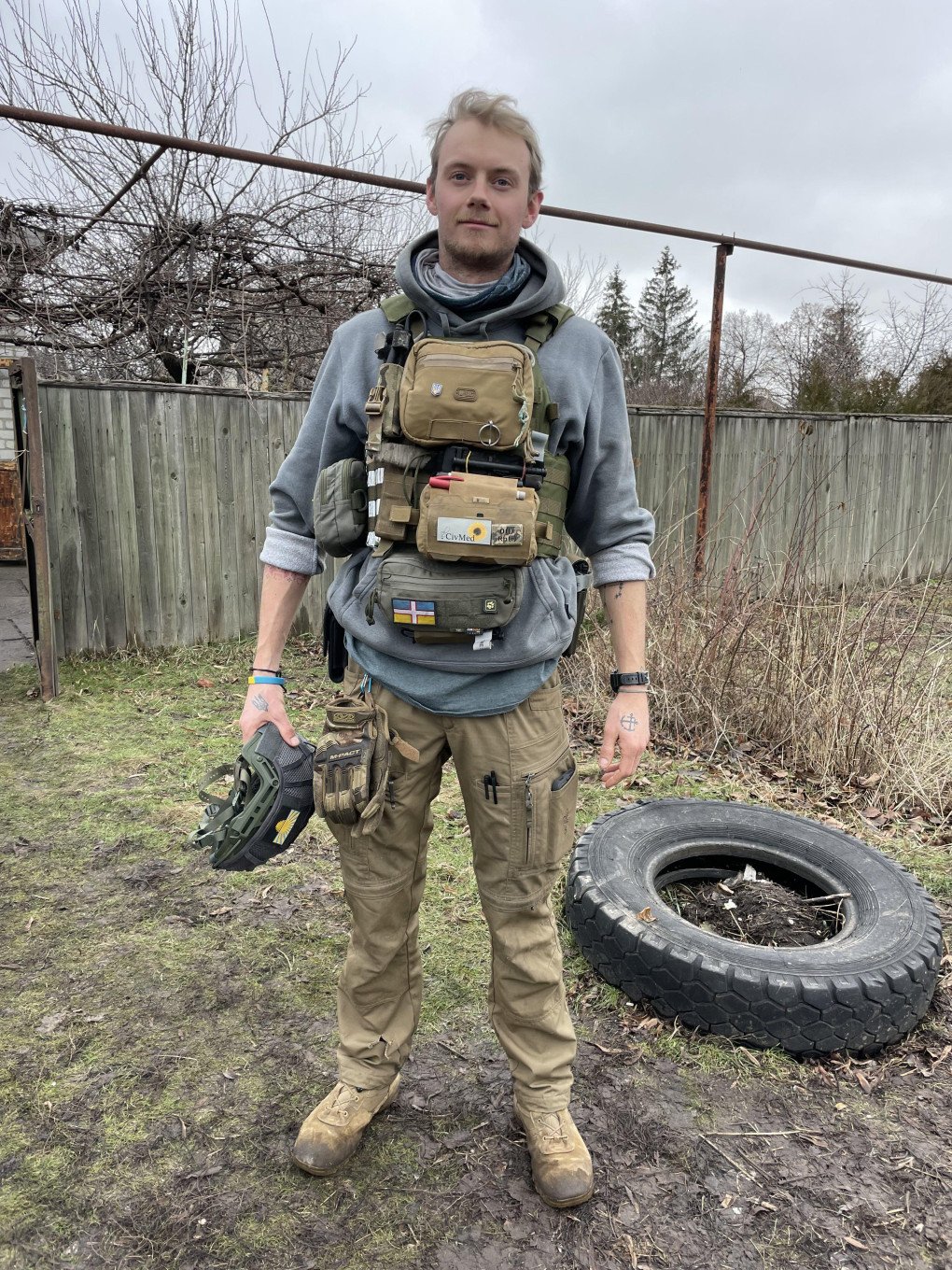
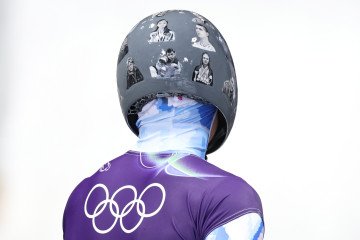

-6ead6a9dd508115a5d69759e48e3cad1.jpg)
-29a1a43aba23f9bb779a1ac8b98d2121.jpeg)
-7f50738271c122a9b5e663cb80703dd6.jpg)

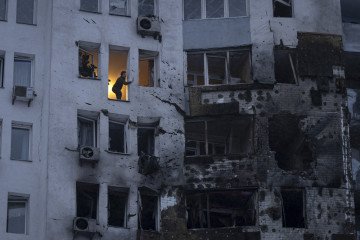
-554f0711f15a880af68b2550a739eee4.jpg)